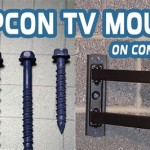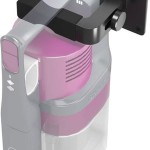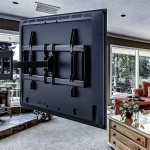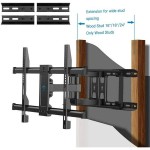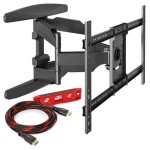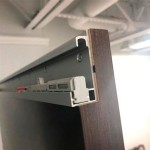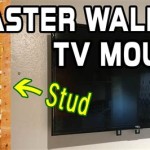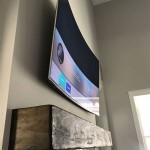Best Extension Cord For Wall-Mounted TV: A Guide to Choosing the Right One
Wall-mounted TVs are a popular choice for their sleek appearance and space-saving design. However, the placement of the TV can sometimes limit the available power outlets, creating a need for an extension cord. Choosing the right extension cord is essential for ensuring your TV receives adequate power and remains safe. This guide will help you navigate the various options and select the best extension cord for your wall-mounted TV.
Power Requirements and Cord Length
The first step in choosing an extension cord is to understand the power requirements of your TV. Refer to the TV's specifications or user manual to determine the wattage and amperage it consumes. Choose an extension cord with a higher wattage rating than your TV's requirements to ensure sufficient power delivery. For example, if your TV draws 150 watts, an extension cord with a 200-watt rating would be suitable.
Next, consider the distance between the power outlet and your TV. Measure the distance accurately to ensure the cord is long enough to reach comfortably without being stretched or strained. A too-short cord can cause overheating and damage to the cord, while a too-long cord can present a tripping hazard. Aim for an extension cord that is just long enough to reach the TV without any slack.
Cord Gauge and Material
The gauge of an extension cord refers to the thickness of the wire, which directly impacts its ability to carry current. A thicker gauge, such as 14 AWG or 12 AWG, will be able to handle more power without overheating compared to a thinner gauge, such as 16 AWG or 18 AWG. Choose a cord gauge that matches the wattage requirements of your TV and the length of the cord. Remember, a thicker gauge cord will be more durable and less likely to overheat, even with higher wattage devices.
The material of the extension cord is another important factor to consider. While most cords are made from PVC, which is cost-effective and durable, some may be made from more flexible materials like rubber or silicone. These specialized materials are often used in outdoor settings or in situations where the cord needs to be exposed to extreme temperatures. For indoor use, a standard PVC extension cord is generally sufficient.
Features and Safety Considerations
There are several additional features to consider when selecting an extension cord:
- Surge Protection: Integrating a surge protector into your extension cord can help safeguard your TV and other connected devices against power surges, which can damage sensitive electronics. Choose a cord with a surge protector rating suited for your equipment's wattage and amperage requirements.
- Grounded Outlets: Grounded outlets provide an additional safety measure by offering a path for electrical current to flow to the ground in case of a fault. Ensure the extension cord you select has grounded outlets to protect your TV and yourself from electrical shocks.
- Built-in Power Strip: Some extension cords offer built-in power strips, providing multiple outlets for connecting multiple devices. This can be convenient if you have other electronics you need to power near your TV.
- Clamping System: Some extension cords feature a clamping system for securing the cord to a wall or surface, preventing it from becoming loose or unplugged accidentally. This can be particularly helpful for wall-mounted TVs.
Popular Choices and Considerations
When choosing an extension cord for your wall-mounted TV, consider these popular options:
- Flat Extension Cords: Flat extension cords are a popular choice due to their unobtrusive design. They are available in various lengths and gauge options. However, they might not be as durable as round cords and can be more prone to damage.
- Heavy-Duty Extension Cords: Heavy-duty extension cords are designed for high-power applications and often feature thicker gauges and more durable materials. They are a good option for larger TVs or if you are concerned about long-term reliability.
- Wireless Extension Cords: Wireless extension cords are an innovative option that allows you to wirelessly transmit power to your TV from a power outlet. They offer greater flexibility and can eliminate the need for visible cords. However, wireless extension cords can be more expensive and have limited power output compared to traditional cords.
Conclusion
Choosing the right extension cord for your wall-mounted TV can seem like a daunting task. Remember that the power requirements of your TV, the distance between the outlet and the TV, and the desired features are essential factors to consider. By carefully evaluating your needs and the options available, you can select a cord that provides safe, reliable power for your television and enhances your viewing experience.

Extension Cord Is It Safe To Mount A Surge Protector Strip Behind Wall Mounted Television Home Improvement Stack Exchange

The 4 Best Extension Cords For Your Home And Garage Of 2025 Reviews By Wirecutter

Electric In Wall Power Cord And Cable Kit A32 Kw The Home

Clear The Clutter How To Hide Tv Wires And Cords Guest Post From Young House Love

Electric 4 Ft Flat Screen Tv Cord Cover A31 Kw
Hiding Power Cable For Wall Mounted Tv Woodworking Talk

The 4 Best Extension Cords For Your Home And Garage Of 2025 Reviews By Wirecutter

Dual Outlet In Wall Cable Management System With Small Tv Mount Professional Model Two Pro Tvms

The 4 Best Extension Cords For Your Home And Garage Of 2025 Reviews By Wirecutter

Electric 4 Ft Flat Screen Tv Cord Cover A31 Kw The Home

